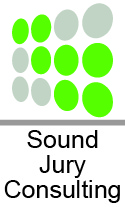The Important Connection between September 11, COVID-19, and Jury Decision-Making
By Thomas M. O’Toole, Ph.D. As the country starts to re-open and jury trials resume, it is our job to research and understand what impact the pandemic and the stay-at-home orders that lasted over two months in some states will have on how jurors evaluate liability and damages going forward. There are many ways to approach this kind of research. For example, we just completed on of the largest surveys we have ever conducted in order to get specific answers to some of the questions we know attorneys and general counsel will have. We are currently in the process of

